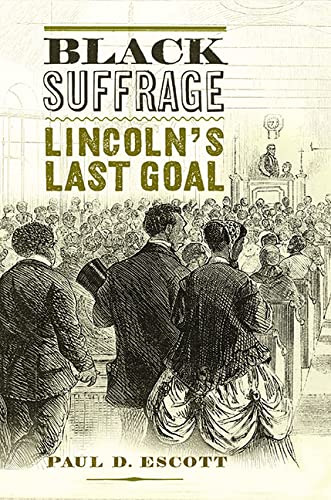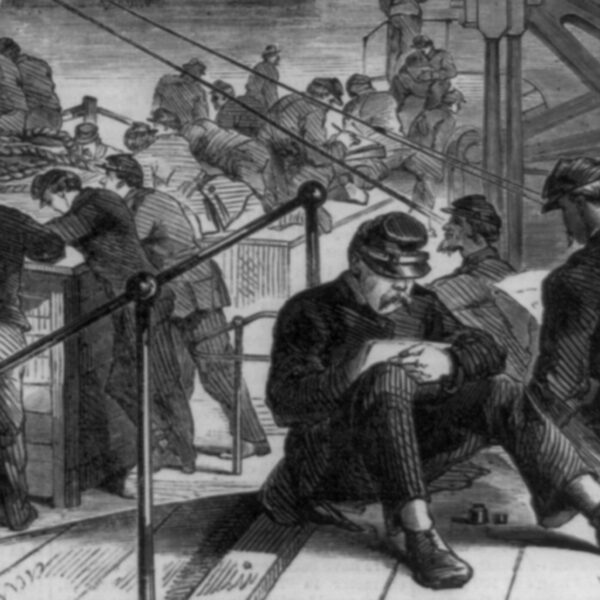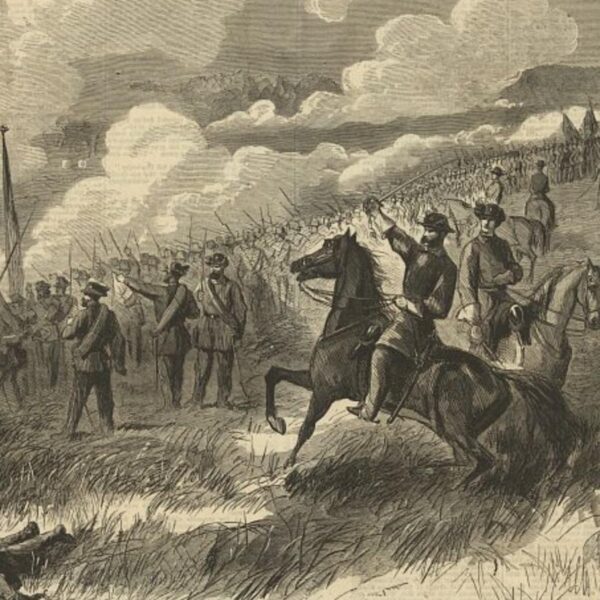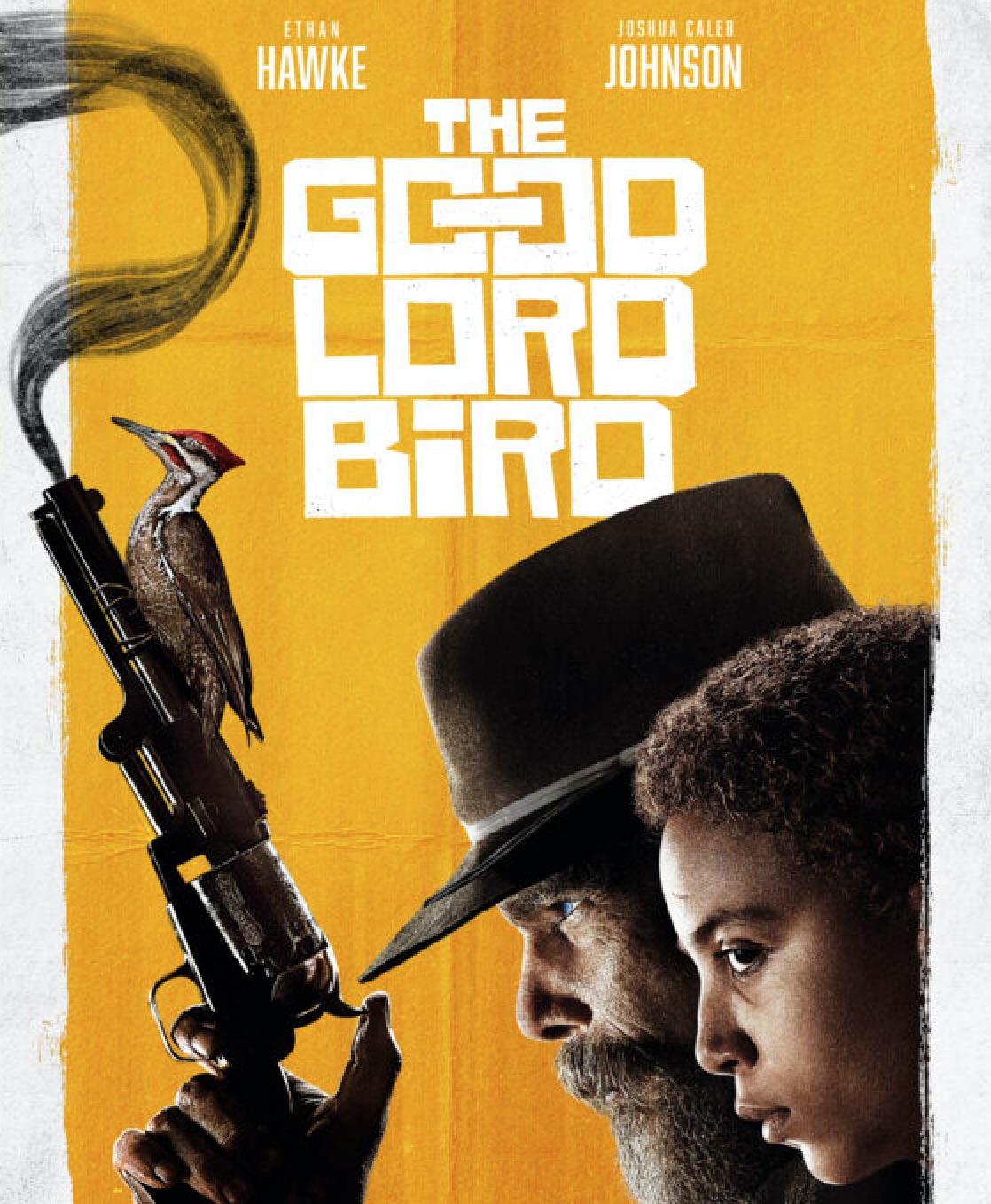
On October 4, 2020, The Good Lord Bird, a 7-part miniseries about the life of abolitionist John Brown—based on the award-winning novel of the same name by James McBride—premiered on Showtime. We enlisted historian Megan Kate Nelson to watch and review the series, episode by episode. We’ll publish her takes below, as each episode airs.
Episode Four: “Smells Like Bear” (aired October 25, 2020)
Onion and John Brown are still on the road in Episode 4, as Brown uses some “speechifying” tricks that Frederick Douglass taught him to raise money for his revolutionary plan in Pennsylvania and then across the border in Canada.
Brown suggests that he might call up Onion to testify to his violent experiences and maltreatment while enslaved, and he objects. “Dutch never whipped me, and he fed me good. I was never cold until I was sleeping out in the woods with you and the boys,” Onion tells Brown. “Truth be told, I ain’t seen a person murdered until I met you.” Brown is shocked by this truthful testimony. Once again, the nature of freedom—and the tendency of white abolitionists to misunderstand it entirely—becomes a theme in The Good Lord Bird. Later in the episode, as Brown practices a part of his speech arguing that “every negro must be free!” Onion explodes in frustration. “Dammit, I am a negro. And I’m ready to be free.”
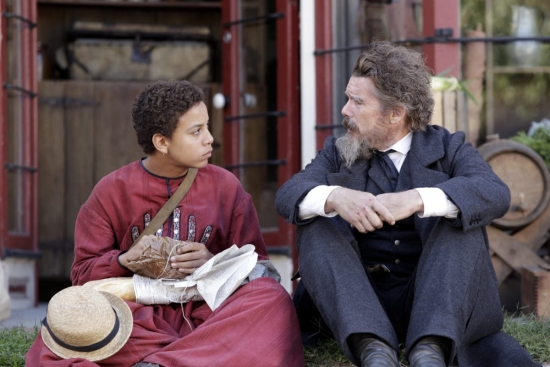
Onion (Joshua Caleb Johnson) and John Brown (Ethan Hawke) in a scene from Episode 4 of “The Good Lord Bird.”
Once again, Brown is surprised. “You are already free,” he says. “No, I ain’t,” Onion insists. “If I’m so free, why do I do everything you tell me to do.” “That is not slavery,” Brown argues. “We are abolitionists. Warriors.… Family. Aren’t we?” Onion just shakes his head. Brown does seem enlightened by this exchange, and once they arrive in Canada, he apologizes to Onion, points him toward a Catholic mission that can help him get settled in the area, and bids him farewell. After wandering the streets for a while, Onion finds his way back to Brown, who is giving a speech to a crowd of white and black abolitionists. After making the choice to be there, Onion seems more captivated by Brown’s “speechifying,” and begins to see how persuasive a political leader he can be. But it is not Brown’s talents at raising money or recruiting men for his cause that are the focus of this episode. His hopelessness regarding the former is revealed early on, in fact, at one of his events, when he is conned out of all of the money he and Onion have made by Hugh Forbes (Darren Goldstein), a mercenary Brown wants to train his men for battle. Instead, much like in Episode 2, it is the strength of black women’s leadership that becomes the centerpiece here.
When Brown asks his Canadian audience to sign up to join his army, they are ready to abandon his cause. Enter “The General”: Harriet Tubman (Zainab Jah). The audience members immediately stand in respect, as Tubman walks slowly toward the front of the meeting house. She turns, and makes a speech. “John Brown don’t need to explain nothing to me,” she says. “If he says he has a good plan, he has a good plan…. He ain’t asking you to help him. He’s asking you to help yourself, free yourself.” Tubman goes on to ridicule the men, in particular, for “clucking like a bunch of hens, sitting here warm and cozy” while their family members are trapped in slavery in the United States. “You sittin’ on the doorstep of change, lonely and too scared to walk through it,” she admonishes them. “Mr. Brown asks who is a man here.”
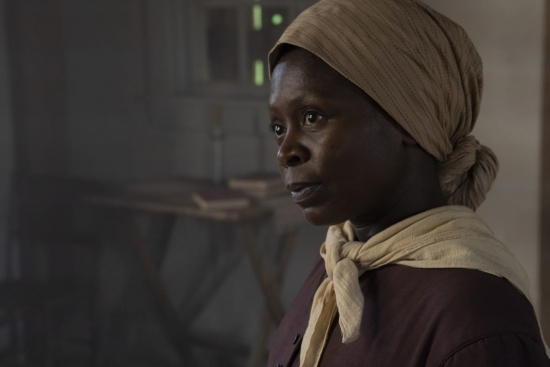
Zainab Jah as Harriet Tubman in “The Good Lord Bird.”
Onion, who is transfixed, lurches off of the bench and squeaks out, “Sign me up! I will follow the Captain to the ends of the earth! Count me in!” He cannot explain why he did such a thing, except that “Miss Tubman standing there so firm and so strong, reminded me of Sibonia, saying ‘I am the woman. And I am not ashamed.’” After Onion makes the pledge, the majority of the black men in the room and one white man, John Cook (Rafael Casal), rise up to follow him. “Praise Jesus,” Tubman declares. “And a child will lead them.” Unlike the show’s depictions of Frederick Douglass and John Brown, its treatment of Tubman is reverent. She is regal, commanding, and powerful. She is even slightly mystical, appearing in a dream Onion has at the beginning of the episode, asking, “Who are ya? What are ya?” It is possible to treat Harriet Tubman with a little more humor without losing a sense of her ferocity—one thinks immediately of Octavia Spencer’s gloriously hilarious enactment of Tubman on an episode of Comedy Central’s Drunk History—but here, she is a distinguished, almost saintly revolutionary.
The link Onion makes between Tubman and Sibonia is not coincidental. They represent black female leadership in The Good Lord Bird, women devoted to the fight to free their people, and willing to make the ultimate sacrifice for it. Both Sibonia and Tubman force Onion to reckon with his identity as a young man yearning for freedom, who is simultaneously experiencing (a bit) what it feels like to be a black woman in late 1850s America. As they travel back the gang’s headquarters in the United States, Brown outlines his plan to raid Harpers Ferry, Virginia, and “hive the slaves” from their plantations to create an army of revolutionaries in the Blue Ridge Mountains.
Once again, Brown offers Onion a choice. He wants him to go to Harpers Ferry with Cook and establish a forward base for the uprising to come. But it’s Onion’s decision. He can join the fight if he wishes. “I’m with you Captain,” Onion says. And they shake on it. The train moves southward, as the classic blues song “She Caught the Katy” (1968) plays. “Crazy ‘bout her,” the singer croons, “That hard headed woman of mine.”
Megan Kate Nelson is a historian and writer. She is the author, most recently, of The Three-Cornered War: The Union, the Confederacy, and Native Peoples in the Fight for the West (Scribner, 2020).
Other articles in this series:
Review of Episode One: “Meet the Lord”
Review of Episode Two: “A Wicked Plot”
Review of Episode Three: “Mr. Fred”
Review of Episode Five: “Hiving the Bees”
Review of Episode Six: “Jesus Is Walkin'”
Review of Episode Seven: “Last Words”
Related topics: African Americans, emancipation

